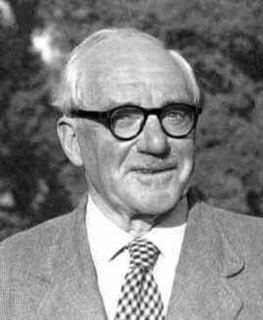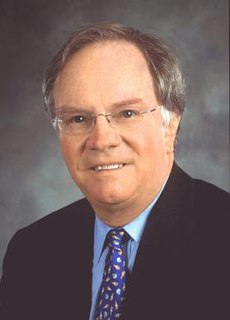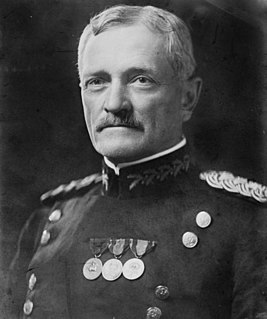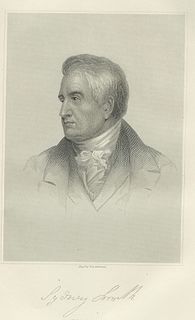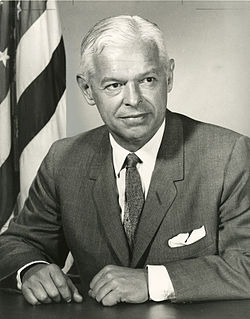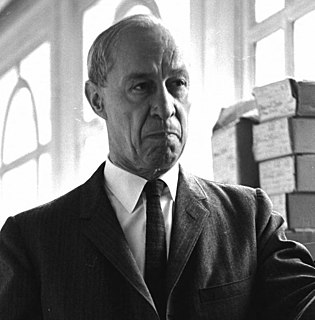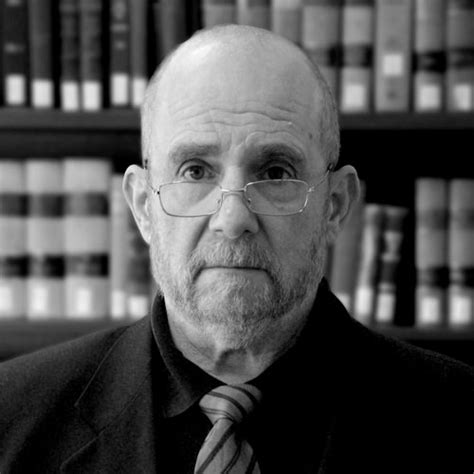Top 431 Probability Quotes & Sayings - Page 7
Explore popular Probability quotes.
Last updated on April 20, 2025.
Meanwhile, little people like you and me, if our prayers are sometimes granted, beyond all hope and probability, had better not draw hasty conclusions to our own advantage. If we were stronger, we might be less tenderly treated. If we were braver, we might be sent, with far less help, to defend far more desperate posts in the great battle.
It is a well-known fact that in countries in which the national debt is properly funded, and an object of established confidence, it answers most of the purposes of money. Transfers of stock, or public debt, are there equivalent to payments in specie; or, in other words, stock, in the principal transactions of business, passes current as specie. The same thing would, in all probability, happen here, under the like circumstances.
"I think you're begging the question," said Haydock, "and I can see looming ahead one of those terrible exercises in probability where six men have white hats and six men have black hats and you have to work it out by mathematics how likely it is that the hats will get mixed up and in what proportion. If you start thinking about things like that, you would go round the bend. Let me assure you of that!"
Man's destiny was no longer determined from 'above' by a super-human wisdom and will, but from 'below' by the sub-human agencies of glands, genes, atoms, or waves of probability. ...they could determine his fate, but could provide him with no moral guidance, no values and meaning. A puppet of the Gods is a tragic figure, a puppet suspended on his chromosomes is merely grotesque.
At one time, the earth was supposed to be flat. Well, so it is, even today, from Paris to Asnieres. But that fact doesn't prevent science from proving that the earth as a whole is spherical. No one nowadays denies it. Well...we are still at the stage of believing that life itself is flat, the distance from birth to death. Yet the probability is that life, too, is spherical and much more extensive and capacious than the hemisphere we know.
The certainty that life cannot be long, and the probability that it will be much shorter than nature allows, ought to awaken every man to the active prosecution of whatever he is desirous to perform. It is true, that no diligence can ascertain success; death may intercept the swiftest career; but he who is cut off in the execution of an honest undertaking has at least the honour of falling in his rank, and has fought the battle, though he missed the victory.
If to enjoy even an enjoyable present we must have the assurance of a happy future, we are “crying for the moon.” We have no such assurance. The best predictions are still matters of probability rather than certainty, and to the best of our knowledge every one of us is going to suffer and die. If, then, we cannot live happily without an assured future, we are certainly not adapted to living in a finite world where, despite the best plans, accidents will happen, and where death comes at the end.
It is natural to men to judge of things less known, by some similitude they observe, or think they observe, between them and things more familiar or better known. In many cases, we have no better way of judging. And, where the things compared have really a great similitude in their nature, when there is reason to think that they are subject to the same laws, there may be a considerable degree of probability in conclusions drawn from analogy.
If you trace back all those links in the chain that had to be in place for me to be here, the laws of probability maintain that my very existence is miraculous. But then after however many decades, less than a hundred years, they disburse and I cease to be. So while they're all congregated and coordinated to make me, then-and I speak her on behalf of all those trillions of atoms-I should really make the most of things.
At 55 I said the probability is I won't have another relationship. I just didn't want to start another family. Between my own bizarre criteria and taste and the fact that I'm not available for many things I thought it was unlikely. Once you know the science about it, I don't think anybody should consider being committed to a real eternal relationship until you're through something called the infatuation circle.
One influential philosophical position about the use of probability in science holds that probabilities are objective only if they are based on micro-physics; all other probabilities should be interpreted subjectively, as merely revealing our ignorance about physical details. I have argued against this position, contending that the objectivity of micro-physical probabilities entails the objectivity of macro-probabilities.
Rather, risk is a perception in each investor's mind that results from analysis of the probability and amount of potential loss from an investment. If an exploratory oil well proves to be a dry hole, it is called risky. If a bond defaults or a stock plunges in price, they are called risky. But if the well is a gusher, the bond matures on schedule, and the stock rallies strongly, can we say they weren't risky when the investment after it is concluded than was known when it was made.
In some ways more painful is the fact that their experience appears to be fading from the collective memory of humankind. Having never experienced an atomic bombing, the vast majority around the world can only vaguely imagine such horror, and these days, John Hersey's Hiroshima and Jonathan Schell's The Fate of the Earth are all but forgotten. As predicted by the saying, 'Those who cannot remember the past are condemned to repeat it,' the probability that nuclear weapons will be used and the danger of nuclear war are increasing.
All empty souls tend to extreme opinion. It is only in those who have built up a rich world of memories and habits of thought that extreme opinions affront the sense of probability. Propositions, for instance, which set all the truth upon one side can only enter rich minds to dislocate and strain, if they can enter at all, and sooner or later the mind expels them by instinct.
However, the small probability of a similar encounter [of the earth with a comet], can become very great in adding up over a huge sequence of centuries. It is easy to picture to oneself the effects of this impact upon the Earth. The axis and the motion of rotation changed; the seas abandoning their old position to throw themselves toward the new equator; a large part of men and animals drowned in this universal deluge, or destroyed by the violent tremor imparted to the terrestrial globe.
Thus we can get the correct answer for the probability of partial reflection by imagining (falsely) that all reflection comes from only the front and back surfaces. In this intuitively easy analysis, the 'front surface' and 'back surface' arrows are mathematical constructions that give us the right answer, whereas .... a more accurate representation of what is really going on: partial reflection is the scattering of light by electrons inside the glass.
We come finally, however, to the relation of the ideal theory to real world, or "real" probability. If he is consistent a man of the mathematical school washes his hands of applications. To someone who wants them he would say that the ideal system runs parallel to the usual theory: "If this is what you want, try it: it is not my business to justify application of the system; that can only be done by philosophizing; I am a mathematician". In practice he is apt to say: "try this; if it works that will justify it".
The knowledge of Natural-History, being Observation of Matters of Fact, is more certain than most others, and in my slender Opinion, less subject to Mistakes than Reasonings, Hypotheses, and Deductions are; ... These are things we are sure of, so far as our Senses are not fallible; and which, in probability, have been ever since the Creation, and will remain to the End of the World, in the same Condition we now find them.
Saudi Arabian oil production is at or very near its peak sustainable volume (if it did not, in fact peak almost 25 years ago), and is likely to go into decline in the very foreseeable future. There is only a small probability that Saudi Arabia will ever deliver the quantities of petroleum that are assigned to it in all the major forecasts of world oil production and consumption.
He went to bed early, but could not fall asleep. He was haunted by sad and gloomy reflections about the inevitable end- death. These thoughts were familiar to him, many times had he turned them over this way and that, first shuddering at the probability of annihilation, then welcoming it, almost rejoicing in it. Suddenly a peculiarly familiar agitation took possession of him... He mused awhile, sat down at the table, and wrote down the following lines in his sacred copy-book, without a single correction.
The representatives of business interests are the men to start this enterprise among our people and bring them to a full realization of the very grave seriousness of this war, to make them feel that we are in this war to win, and the probability is that our entering this war is going to be the deciding factor, and that the burden of the success is going to rest upon the United States.
I am convinced that it is impossible to expound the methods of induction in a sound manner, without resting them upon the theory of probability. Perfect knowledge alone can give certainty, and in nature perfect knowledge would be infinite knowledge, which is clearly beyond our capacities. We have, therefore, to content ourselves with partial knowledge - knowledge mingled with ignorance, producing doubt.
On moral grounds, I think that if you believe a certain outcome is a very possible outcome, you have an obligation to tell people that. With global warming, the probability of a bad outcome if we stay on our current emission trends is incredibly high. If you know a bad outcome is likely to happen, what right do you have not to communicate that? You go into a doctor's office, what are they going to do - not tell you the diagnosis?
A great deal of talent is lost to the world for the want of a little courage. Every day sends to their graves a number of obscure men who have only remained obscure because their timidity has prevented them from making a first effort; and who, if they could only have been induced to begin, would in all probability have gone great lengths in the career of fame.
It was wonderful love that Christ should rather die for us than for the angels that fell. They were creatures of a more noble extract, and in all probability might have brought greater revenues of glory to God; yet that Christ should pass by those golden vessels, and make us clods of earth into stars of glory -- Oh, the hyperbole of Christ's love!
If you sat with a pencil and jotted down all the decisions you've taken in the past week, or, if you could, over your lifetime, you would realize that almost all of them have had asymmetric payoff, with one side carrying a larger consequence than the other. You decide principally based on fragility, not probability. Or to rephrase, You decide principally based on fragility, not so much on True/False.
What geographic profiling does is it takes a look at the locations of a connected series of incidents - say murders in a serial murder case or robberies in a serial bank robber case - and it spatially analyzes the point pattern of incidents, and creates a probability surface from those, working from the basis of an algorithm that says people offend close to where they live, but not too close.
The incomplete knowledge of a system must be an essential part of every formulation in quantum theory. Quantum theoretical laws must be of a statistical kind. To give an example: we know that the radium atom emits alpha-radiation. Quantum theory can give us an indication of the probability that the alpha-particle will leave the nucleus in unit time, but it cannot predict at what precise point in time the emission will occur, for this is uncertain in principle.
Without any doubt, the regularity which astronomy shows us in the movements of the comets takes place in all phenomena. The trajectory of a simple molecule of air or vapour is regulated in a manner as certain as that of the planetary orbits; the only difference between them is that which is contributed by our ignorance. Probability is relative in part to this ignorance, and in part to our knowledge.
My favourite fellow of the Royal Society is the Reverend Thomas Bayes, an obscure 18th-century Kent clergyman and a brilliant mathematician who devised a complex equation known as the Bayes theorem, which can be used to work out probability distributions. It had no practical application in his lifetime, but today, thanks to computers, is routinely used in the modelling of climate change, astrophysics and stock-market analysis.
Just as entropy is a measure of disorganization, the information carried by a set of messages is a measure of organization. In fact, it is possible to interpret the information carried by a message as essentially the negative of its entropy, and the negative logarithm of its probability. That is, the more probable the message, the less information it gives. Cliches, for example, are less illuminating than great poems.
People are entirely too disbelieving of coincidence. They are far too ready to dismiss it and to build arcane structures of extremely rickety substance in order to avoid it. I, on the other hand, see coincidence everywhere as an inevitable consequence of the laws of probability, according to which having no unusual coincidence is far more unusual than any coincidence could possibly be.
The endeavor of scientific research to see events in their more general connection in order to determine their laws, is a legitimate and useful occupation. Any protest against such efforts, in the name of freefom from restrictive conditions, would be fruitless if science did not naïvely identify the abstractions called rules and laws with the actually efficacious forces, and confuse the probability that B will follow A with the actual effort make B follow A.
According to PhD astrophysicists and qualified American science professors, the odds of the more than 2,500 prophecies found in the Bible being fulfilled by chance are 1 with 2,000 zeros after it. According to the mathematical science of probability, if a number has more than 50 zeros after it, the odds of that happening by chance is virtually impossible. This is irrefutable proof that the Bible is inspired by God!
Obviously, things can get derailed, particularly if, which looks more and more likely, you get a blow-up between Israel and Iran. I think that's a very real probability now. But barring some real blow-up, the U.S. economy will grow, after a slow first quarter, about 3, 3.5 percent this year, far better than it was in 2011.
Expert estimates of probability are often off by factors of hundreds or
thousands. [...] I used to be annoyed when the margin of error was high in
a forecasting model that I might put together. Now I view it as perhaps the
single most important piece of information that a forecaster provides. When
we publish a forecast on FiveThirtyEight, I go to great lengths to document
the uncertainty attached to it, even if the uncertainty is sufficiently
large that the forecast won't make for punchy headlines.
Further, the same Arguments which explode the Notion of Luck, may, on the other side, be useful in some Cases to establish a due comparison between Chance and Design: We may imagine Chance and Design to be, as it were, in Competition with each other, for the production of some sorts of Events, and may calculate what Probability there is, that those Events should be rather be owing to the one than to the other.
Nearly everybody nowadays accepts the 'causal completeness of physics' - every physical event (or at least its probability) has a full physical cause. This leaves no room for non-physical things to make a causal difference to physical effects. But it would be absurd to deny that thoughts and feelings (and population movements and economic depressions . . .) cause physical effects. So they must be physical things.
A point of great importance would be first to know: what is the capacity of the earth? And what charge does it contain if electrified? Though we have no positive evidence of a charged body existing in space without other oppositely electrified bodies being near, there is a fair probability that the earth is such a body, for by whatever process it was separated from other bodies - and this is the accepted view of its origin - it must have retained a charge, as occurs in all processes of mechanical separation.
Time Management Tips: One can make a radar-like sweep of the horizon to identify time and task challenges while these are still manageable and while we still have a choice. The organizational adage, "the more parts, the more trouble," also applies to words. Multiplying words may actually multiply the probability of being misunderstood; economies in expression (without being taciturn or aloof) not only save time, but usually are more honest and more clear.
Nature prefers the more probable states to the less probable because in nature processes take place in the direction of greater probability. Heat goes from a body at higher temperature to a body at lower temperature because the state of equal temperature distribution is more probable than a state of unequal temperature distribution.
Crushed to earth and rising again is an author's gymnastic. Once he fails to struggle to his feet and grab his pen, he will contemplate a fact he should never permit himself to face: that in all probability books have been written, are being written, will be written, better than anything he has done, is doing, or will do.
It is only through the psyche that we can establish that God acts upon us, but we are unable to distinguish whether these actions emanate from God or from the unconscious. We cannot tell whether God and the unconscious are two different entities. Both are border-line concepts for transcendental contents. But empirically it can be established, with a sufficient degree of probability, that there is in the unconscious an archetype of wholeness.
Is the world ruled by strict laws or not? This question I regard as metaphysical. The laws we find are always hypotheses; which means that they may always be superseded, and that they may possibly be deduced from probability estimates. Yet denying causality would be the same as attempting to persuade the theorist to give up his search; and that such an attempt cannot be backed by anything like a proof.
It is prima facie highly implausible that life as we know it is the result of a sequence of physical accidents together with the mechanism of natural selection. We are supposed to abandon this naïve response, not in favor of a fully worked out physical/chemical explanation but in favor of an alternative that is really a schema for explanation, supported by some examples. What is lacking, to my knowledge, is a credible argument that the story has a nonnegligible probability of being true.
Based on a detailed investigation of all the facts and supported by the testimony of the surviving Japanese leaders involved, it is the Survey's opinion that certainly prior to 31 December 1945 and in all probability prior to 1 November 1945, Japan would have surrendered even if the atomic bombs had not been dropped, even if Russia had not entered the war, and even if no invasion had been planned or contemplated.
And human instinct is ancient and reliable, utterly mysterious and possibly capable of great genius. I believe that refined, fluent instincts are a person's most valuable asset. My own instincts have repeatedly guided me against the grain of logic and probability. When I have trusted and followed their direction, they have never been wrong. I don't know how or why. But I know that every significant experience-positive or negative-sharpens them and makes them more accurate.
I have been too long acquainted with human nature to have great regard for human testimony; and a very great degree of probability, supported by various concurrent circumstances, conspiring in one point, will have much greater weight with me, than human testimony upon oath, or even upon honour; both of which I have frequently seen considerably warped by private views.
Much attention has been focused on the MMR shot itself, whereas in all probability it is a combination of the three factors listed above: the increasing number of vaccines, the large amount of mercury, and the inherent danger of the triple vaccine.....The MMR vaccine is also especially suspect because laboratories in England, Ireland, and Japan have found evidence of MMR vaccine viruses in the intestinal tracts of autistic children, but not in control group, non-autistic children.
There is a radical and unprecedented shift [in war] that is part of the general transformation of civilization. First, understand that the past 150 years of warfare are totally unprecedented in that we introduced a breathtakingly inefficient technology: guns. In the First World War, and this is not an exaggeration, it took 10,000 rounds of ammunition to kill one person. Any given shot had a one in 10,000 probability of ending someone's life.
As I have heard, since my arrival at this place, a circumstantial account of my death and dying speech, I take this early opportunity of contradicting the first, and of assuring you, that I have not as yet composed the latter. But by the All-Powerful Dispensations of Providence, I have been protected beyond all human probability or expectation; for I had four bullets through my coat, and two horses shot under me, yet escaped unhurt, although death was leveling my companions on every side of me!
But the indeterminate future is somehow one in which probability and statistics are the dominant modality for making sense of the world. Bell curves and random walks define what the future is going to look like. The standard pedagogical argument is that high schools should get rid of calculus and replace it with statistics, which is really important and actually useful. There has been a powerful shift toward the idea that statistical ways of thinking are going to drive the future.
In all probability the Human Genome Project will, someday, find that I carry some recessive gene for optimism, because despite all my best efforts I still can't scrape together even a couple days of hopelessness. Future scientists will call it the Pollyanna Syndrome, and if forced to guess, I'd say that mine has been a way-long case history of chasing rainbows.
I cannot assume you will understand me. It is just as likely that as I invent what I want to say, you will invent what you want to hear. Some story we must have. Stray words on crumpled paper. A weak signal into the outer space of each other. The probability of seperate worlds meeting is very small. The lure is immense. We send starships. We fall in love
Some periods of our growth are so confusing that we don't even recognize that growth is happening...Those long periods when something inside ourselves seems to be waiting, holding its breath, unsure about what the next step should be, eventually become the periods we wait for, for it is in those periods that we realize that we are being prepared for the next phase of our life and that, in all probability, a new level of the personality is about to be revealed.
General relativity is in the old Newtonian framework where you predict what will happen, not the probability of what will happen. And putting together the probabilities of quantum mechanics with the certainty of general relativity, that's been the big challenge and that's why we have been excited about string theory, as it's one of the only approaches that can put it together.
Contemporary scholars have little explored the preconditions of genocide. Still less have they asked whether a society's weapons policy might be one of the institutional arrangements that contributes to the probability of its government engaging in some of the more extreme varieties of outrage. Though it is a long step between being disarmed and being murdered - one does not usually lead to the other - but it is nevertheless an arresting reality that not one of the principal genocides of the 20th century, and there have been dozens, has been inflicted on a population that was armed.


















